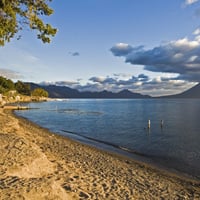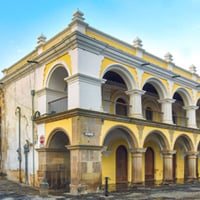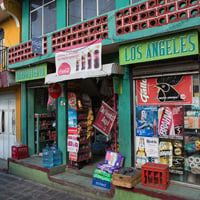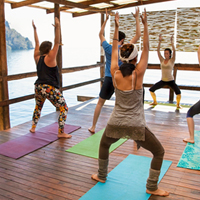Guatemala
Coastal BeachesGuatemala is a vibrant and culturally rich country located in Central America, bordered by Mexico to the north and west, Belize to the northeast, and Honduras and El Salvador to the southeast. It boasts a diverse landscape that includes tropical rainforests, mountains, and coastal areas along the Pacific Ocean and the Caribbean Sea. The country is known for its rich Mayan heritage, as evidenced by numerous archaeological sites like Tikal, which is one of the largest and most impressive ancient Mayan cities. Guatemala's population is a mix of indigenous peoples, including the Maya, as well as people of European descent. Spanish is the official language, but many indigenous languages are also spoken throughout the country. The capital, Guatemala City, is the largest city in Central America and is the political, cultural, and economic hub of the nation. The city has a modern downtown area with skyscrapers and shopping centers, but also areas with significant poverty and crime. Outside of the urban areas, the country's natural beauty is on full display, with Lake Atitlán and the volcanoes surrounding it being particularly notable destinations for both tourists and locals. Guatemalan culture is a colorful tapestry of traditions, with vibrant textiles, lively music, and a cuisine that blends Spanish and indigenous influences. The country is famous for its coffee, which is a major export, and for its chocolate, which has been part of its history since Mayan times. Festivals and markets are common, where one can experience the local customs and buy traditional handicrafts. Despite its natural beauty and rich culture, Guatemala faces significant challenges. It has a history of political instability, violence, and corruption. The country also has one of the highest levels of inequality in Latin America, with a large portion of the population living below the poverty line. Efforts are ongoing to improve the standard of living, education, and healthcare for all Guatemalans. Guatemala's climate varies from tropical in the lowlands to cooler in the highlands, and it has a rainy season that typically runs from May to October. The country is also prone to natural disasters such as earthquakes and volcanic eruptions, which have shaped both its landscape and its history. In summary, Guatemala is a country with a rich cultural heritage and stunning natural beauty, juxtaposed with social and economic issues that it continues to confront. It is a land of contrasts, from the bustling streets of Guatemala City to the serene beauty of its lakes and mountains, and from the ancient ruins of the Maya to the modern-day struggles of its people.















